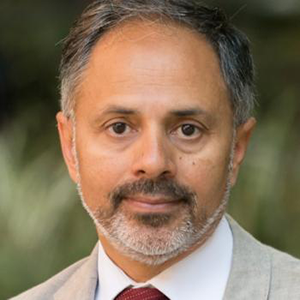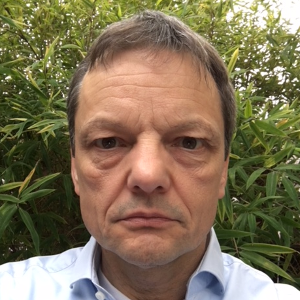Session Abstract – PMWC 2019 Silicon Valley
Session Synopsis: Cancer immunotherapy, and in particular PD-(L)1 blockade, have made a significant impact on the treatment of cancer patients in recent years. However, despite the remarkable clinical efficacy of these agents in a number of malignancies, it has become clear that they are not sufficiently active for many patients. Initial evidence, for example with combined inhibition of PD-1 and CTLA-4 in melanoma and non-small cell lung cancer (NSCLC), has highlighted the potential to further enhance the clinical benefits of monotherapies by combining agents with synergistic mechanisms of action. There are multiple potential rational combinations using an immunotherapy backbone, including existing treatments such as radiotherapy, chemotherapy or molecularly targeted agents, as well as other immunotherapies. Rational trial designs based on a clear understanding of tumor biology and drug pharmacology remain critical.
Session Chair Profile
Biography
Dr. Munster is a physician scientist who received her medical degree from the University of Bern, Switzerland. She completed her medical training at Indiana University Medical Center and Memorial Sloan-Kettering Cancer Center, New York where she then served on faculty as a breast cancer specialist prior to moving to the University of California, San Francisco, where she is Professor in Residence and Program Leader for the Experimental Therapeutics Program, as well as the Co-Leader of the Center for BRCA Research at Helen Diller Family Comprehensive Cancer Center. Her laboratory develops novel targeted cancer treatment strategies. Dr. Munster’s basic research also involves studies on heritable factors of tumor development and treatment. Her clinical mission is to more rapidly translate novel scientific discovery to patient care with a goal to allow patients with incurable cancer real time and broader access to scientific advances. Dr. Munster has published in numerous scientific journals and textbooks, and recently authored Twisting Fate, about her experience as an oncologist and cancer patient.
Speaker Profile
M.D., Ph.D., Professor & Chairman, Radiology, Stanford University

Biography
Dr. Gambhir is the Virginia & D.K. Ludwig Professor of Cancer Research, Chairman of Radiology at Stanford University School of Medicine. Dr. Gambhir’s lab has focused on interrogating fundamental molecular events in living subjects. He has developed and clinically translated several multimodality molecular imaging strategies including imaging of gene and cell therapies.
Speaker Profile
M.D., Distinguished Med Research fellow, VP, ARMO BioSciences, Eli Lilly and Company

Biography
Dr. Oft is a co-founder of ARMO BioSciences, a late stage immuno-oncology company (now Eli Lilly) and an expert in immuno-oncology with indepth experience in pre-clinical, translational and clinical research and development. He oversaw the development of ARMO’s pipeline including pegilodecakin, from early target discovery through clincal development and was the architect of multicohort phase 1 design for expedited Phase 1 to Phase 3 development. He was a co-founder and CEO of Targenics, which merged with ARMO BioSciences. Prior to this Dr. Oft led discovery and development of immuno-oncology research at DNAX Inc. (now Merck Research Labs), was on the faculty at UCSF Cancer Center and on the Onyx Sorafenib team. He received his MD from the University of Erlangen, Germany with postdoctoral training at the Institute for Molecular Pathology in Vienna, Austria. He is a lead author on publications in Nature, Science and Cancer cell, and authored numerous patents.
Talk
Immunotherapy with Pegilodecakin and Anti-PD-1 in NSCLC/RCC
Immunooncology therapies aim to induce activation and expansion of tumor reactive CD8+ T cells. Pegilodecakin induces clonal expansion and activation of tumor reactive T cells and objective tumor responses as monotherapy in patients. Pegilodecakin increases tumor responses and overall survival in combination with chemotherapy of anti-PD-1 (RCC and NSCLC).








